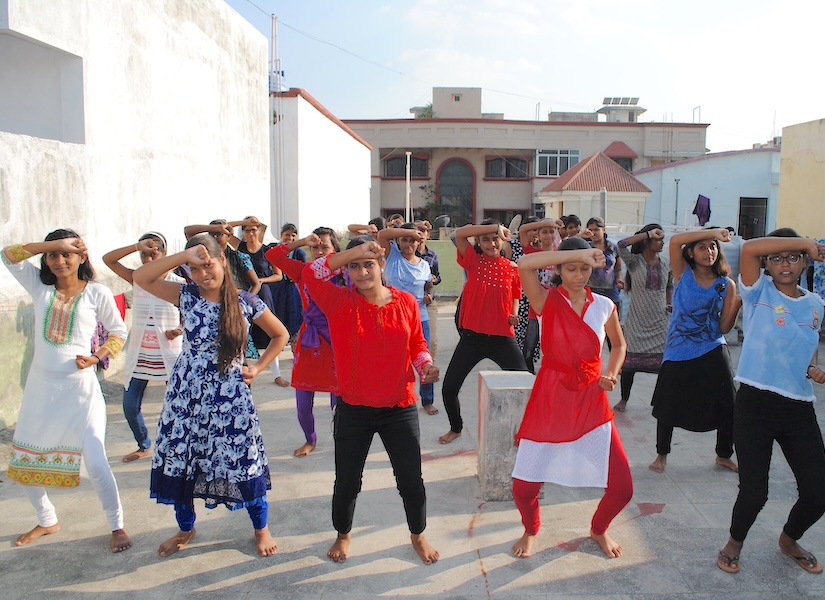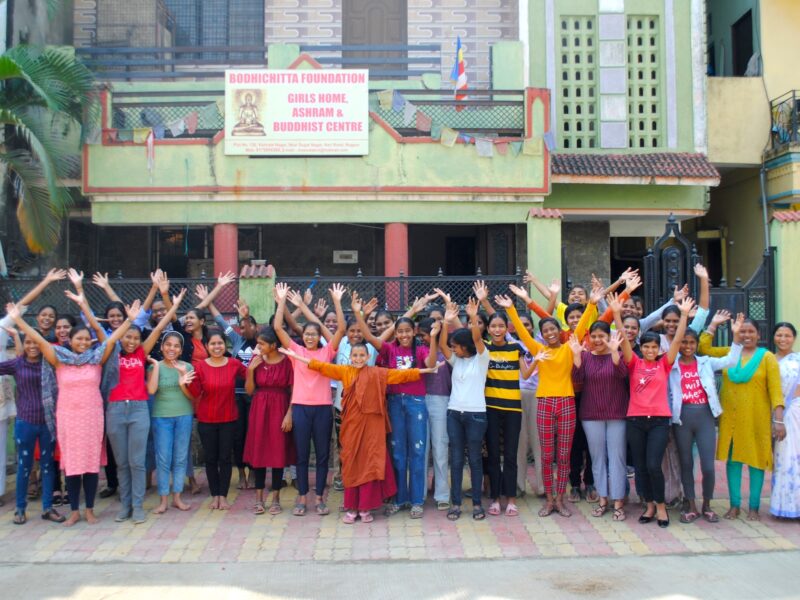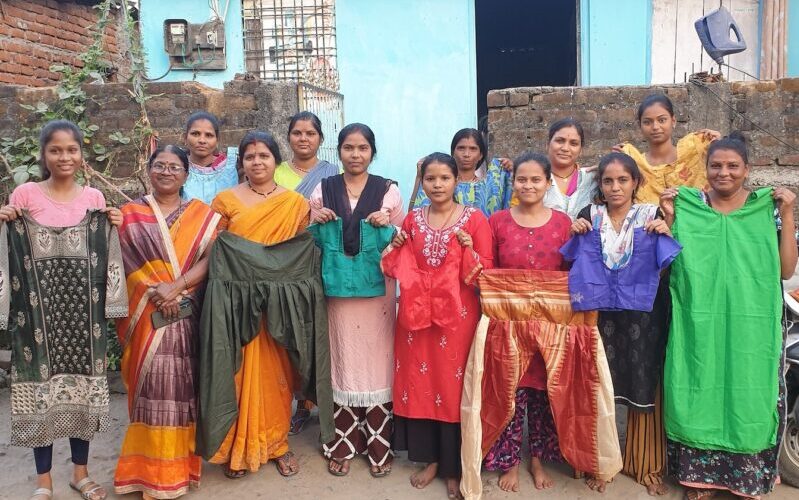Participants in Bodhicitta Foundation’s sewing skills course, in Nagpur, India.
By Andrea Miller
Nagpur is a fast-growing industrial city in the Indian state of Maharashtra, but despite its economic growth, pockets of deep poverty persist, and women and children are especially vulnerable. Food insecurity, child marriage, domestic violence, and limited access to education and health care affect large segments of the female population, particularly among Dalit, Tribal, and other marginalized communities.
In response to these urgent challenges, Bodhicitta Foundation works in Nagpur and the surrounding rural areas to help people, mostly women and children, to break the cycle of poverty. Founded by the Australian Buddhist nun Ayya Yeshe, this grassroots organization offers a range of urgently needed interconnected programs that are sponsored by Buddhist Global Relief.
The Bodhicitta Girls’ Home provides room and board to thirty girls, ages 14 to 24, who are from marginalized communities. While living at the home, the girls complete a three-year university degree. They also receive vocational training in sewing, computer-literacy, and beauty therapy. With this education, the girls can go on to realize their potential and support themselves and their families. Some past residents now have government jobs. Some work as teachers, lawyers, nurses, and physiotherapists.

Women participate in a self-defense course at Bodhicitta Foundation.
Additionally, Bodhicitta Foundation operates seven village outreach centers that provide job training to women in rural communities. These centers offer three-month courses in sewing, English, computer literacy, and beauty therapy—skills that women can use to earn income from home while caring for their children. The instructors at these centers are former residents of the Bodhicitta Girls’ Home. They volunteer their time to “pay forward” the support they once received, creating a ripple effect of empowerment and opportunity.
In underserved communities in and around Nagpur, Bodhicitta Foundation runs four study centers serving 130 children aged 8 to 12. These informal learning hubs provide daily three-hour classes in reading, writing, mathematics, and science to help bridge the gap left by under-resourced public schools.
Bodhicitta Foundation also organizes health camps, hosts human rights advocacy and awareness events, offers free legal advice to people in need, and serves over 7,000 nutritious meals annually to children ages 5 to 8—a service that supports healthy development during a critical stage of growth. All told, the partnership between Buddhist Global Relief and Bodhicitta Foundation directly benefits approximately 6,500 people annually.

Bodhicitta Foundation provides life-changing services for thousands of girls and women each year.
For many years, Kalyani’s education was sponsored by Bodhicitta Foundation. Her mother worked selling vegetables, but she had to stop when she fell ill. Kalyani spent days with social workers from Bodhicitta Foundation, navigating the bleak corridors of government hospitals, fighting for a diagnosis in a system where compassion is often absent. “Patients who have no one to care for them will probably die from the apathy of the staff,” Kalyani says.
Her mother passed away two months ago, and with her father having died years earlier from alcoholism, Kalyani—age 18—was left completely alone. Bodhicitta Foundation stepped in once again, admitting her to their home for girls and initiating a legal case to secure her mother’s share of the family’s land. Though devastated, Kalyani is deeply relieved to have advocates who stand up for women and girls. “Without Bodhicitta Foundation I would literally be on the street,” she shares. Now she dreams of becoming a doctor or nurse, determined to treat patients with the dignity and care her mother was denied.
Rakesh is just 11 years old. After both of his parents died in an automobile accident, he found himself burdened with responsibilities far beyond his years. Though he worked at a restaurant, he didn’t make much money, and he feared he’d be forced to marry off his sisters as teenage brides simply to afford food. The weight of this responsibility left him hopeless and suicidal. “I would lay awake at night worrying how we would survive,” he recalls. Then Rakesh met Ayya Yeshe and told her of his family’s struggles. Now, three of his sisters live at the Bodhicitta’s Girls’ Home, ensuring their safety and education, and Rakesh and his brother are at a similar home for boys. “I am so relieved we met some compassionate people,” Rakesh says. “I am so grateful, I can’t express it in words.”
Guided by principles of compassion and social justice, Bodhicitta Foundation, in partnership with Buddhist Global Relief, offers not just aid, but a path toward long-term transformation.
Andrea Miller is editor of the Buddhist magazine Lion’s Roar. She is the author of Awakening My Heart: Essays, Articles, and Interviews on the Buddhist Life and the picture book The Day the Buddha Woke Up. She serves on the board of directors for Sierra Club Canada Foundation.





